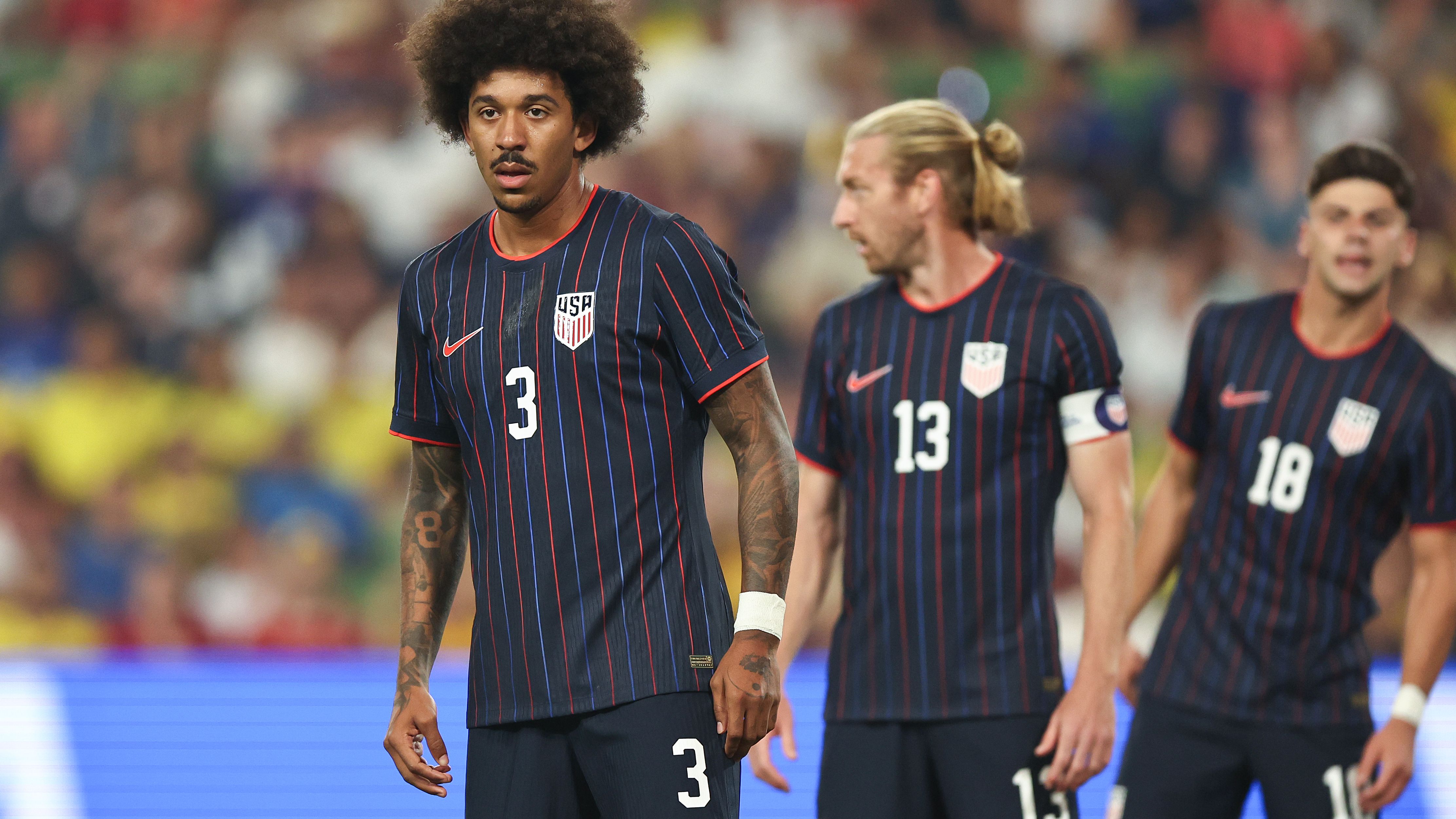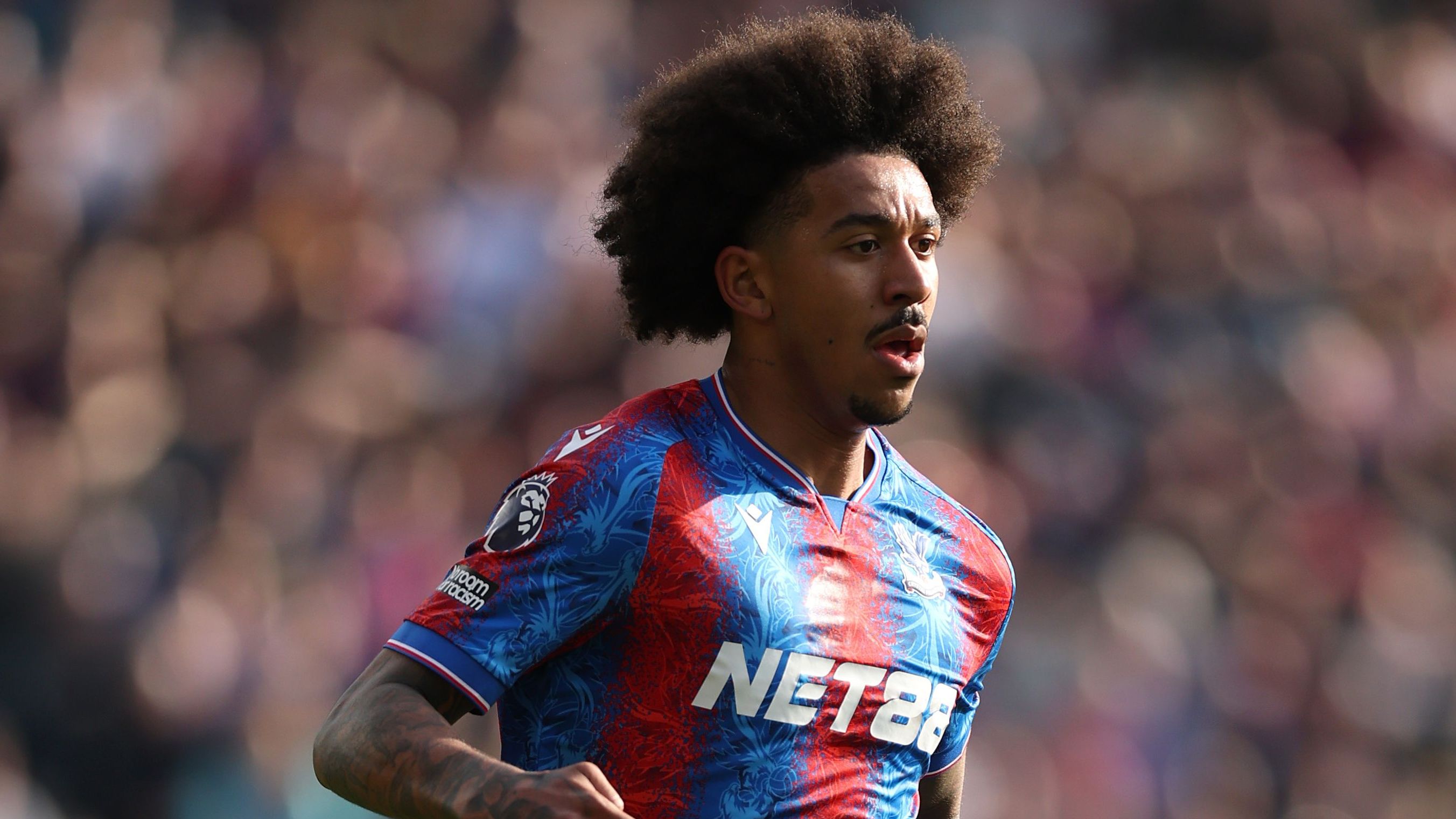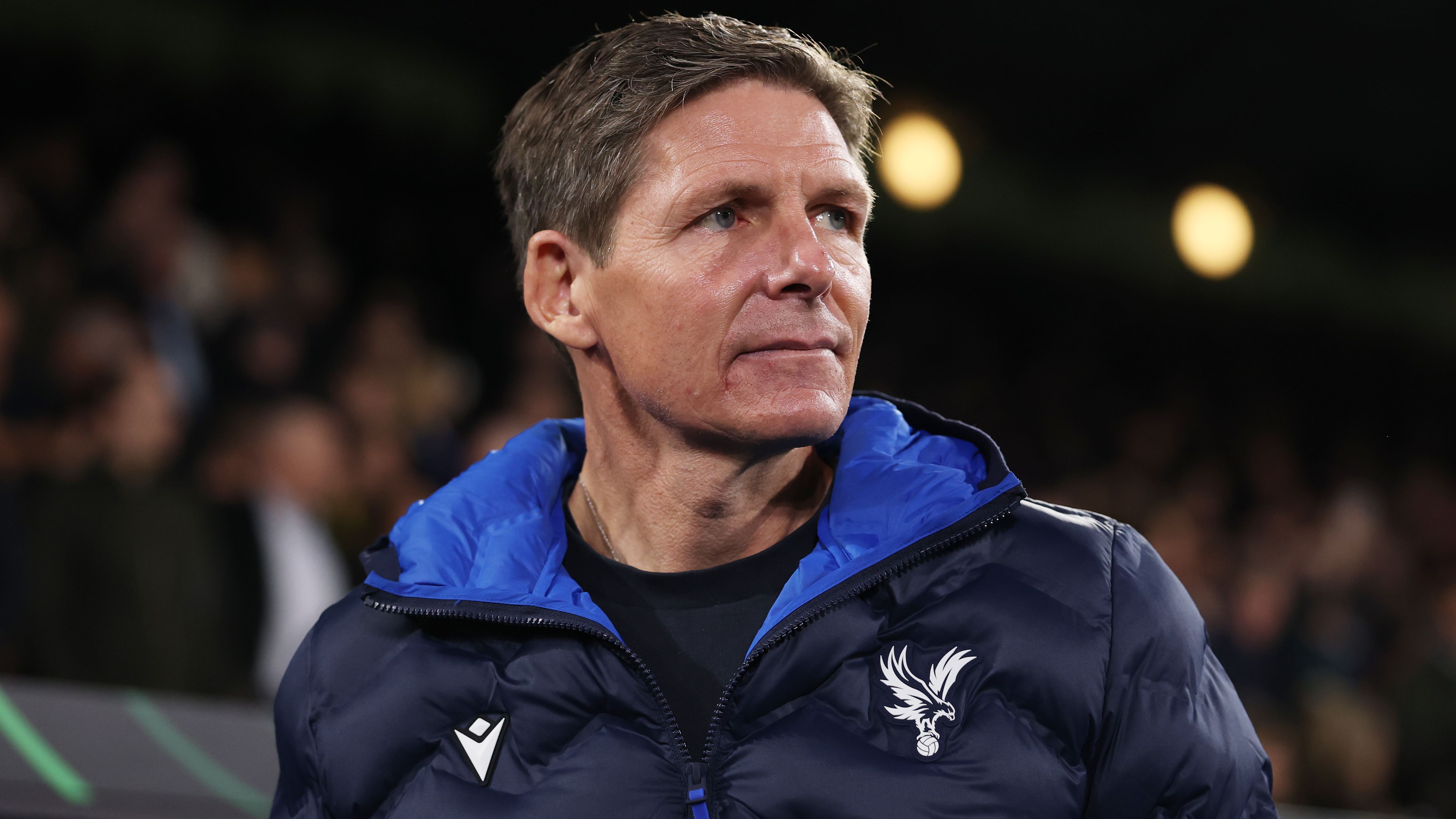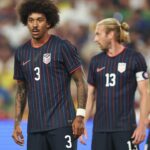Unveiling the Tension: Club vs. Country Clash in USMNT Selections
In the world of international soccer, conflicts between club commitments and national team duties often spark intense debates, especially when player health is at stake. Former USMNT standout Charlie Davies has weighed in on the exclusion of Crystal Palace defender Chris Richards from the latest roster, attributing it to ongoing friction between Palace manager Olivier Glasner and USMNT coach Mauricio Pochettino. This situation highlights how such disagreements can influence key decisions, potentially affecting players’ careers and team dynamics.




Davies’ Perspective on Glasner’s Inconsistencies and Richards’ Performance
Davies, once a prominent figure in USMNT history, has highlighted Glasner’s earlier remarks while pointing out what appears to be a contradiction in how the Crystal Palace coach handled Richards following his complaints. Meanwhile, Pochettino opted to include Richards for the full duration in both October exhibition games, raising questions about prioritization.
Addressing the Calf Injury Claims
During his appearance on the CBS podcast “Call It What You Want,” Davies challenged the validity of citing a calf problem when a player consistently performs at top levels. He argued that if an issue doesn’t hinder participation in league matches, it shouldn’t bar someone from national team consideration. Davies directly linked this to the evident strain between Glasner and Pochettino, stemming from Richards’ heavy involvement in the prior gathering.
Glasner’s Frustrations with USMNT Communication
The Crystal Palace head coach voiced his discontent over the USMNT’s decision to overlook his advice about resting the 25-year-old Richards before facing Ecuador and Australia. In his statements from last week, Glasner explained that Richards had been dealing with a persistent calf concern for weeks, and despite discussions urging caution for the non-competitive fixtures, the player was utilized for every moment of those encounters.
Balancing Player Workload
Glasner noted that his team made efforts to regulate Richards’ playing time, such as benching him against AEK Larnaca, emphasizing that one can’t deceive the body’s limits. This approach underscores the challenges coaches face in managing athletes’ physical demands across different competitions.
Richards’ Return and Ongoing Debate
Even with Glasner’s worries in mind, Richards has demonstrated remarkable resilience, completing the full 90 minutes in each of Crystal Palace’s three subsequent outings. Davies strongly believes Richards deserved a spot in Pochettino’s November squad, particularly given his uninterrupted club form. He found it puzzling that no setbacks occurred post-international duty, countering any narratives of mismanagement.
Highlighting Richards’ Consistency
As Davies put it, it’s noteworthy that Richards returned to Crystal Palace without skipping any fixtures, participating fully in all games. This reality complicates the argument that overexertion during national team play caused harm, shifting the focus to whether exclusion was truly necessary.
Pochettino’s Focus on Emerging Talent
For his part, Pochettino shifted attention away from the controversy, emphasizing the importance of providing opportunities to other squad members during the November window. In his media briefing following the lineup announcement, he stressed the goal of securing victories while allowing newcomers to shine, potentially paving the way for future call-ups as the World Cup approaches.
Potential Centerbacks for the Camp
Players like Mark McKenzie of Toulouse FC, Tim Ream from Charlotte FC, Miles Robinson at FC Cincinnati, Joe Scally with Borussia Mönchengladbach, and Auston Trusty of Celtic are poised to step in at the central defense position for these matches, offering a blend of experience and fresh energy.
Upcoming US Matches
The United States team will wrap up their 2025 schedule with fixtures against Paraguay on November 15, followed by a showdown with Uruguay on November 18, providing a stage for these athletes to prove their mettle.
The Revelation by Charlie Davies
Charlie Davies, the former USMNT striker turned insightful soccer analyst, has stirred up conversations in the soccer world with his latest disclosures. In a recent interview, Davies shed light on the behind-the-scenes drama involving Crystal Palace manager Olivier Glasner and the US Men’s National Team (USMNT). This revelation centers on how ongoing tensions may have influenced the decision to exclude defender Chris Richards from the USMNT roster, highlighting the intricate balance between club and international duties in modern soccer.
What Davies Disclosed About the Tensions
Davies’ comments provide a rare glimpse into the pressures faced by players like Richards, who juggle commitments between their club teams and national squads. According to Davies, the rift reportedly stems from Glasner’s frustration with the USMNT’s scheduling and player management, which he believes overly strains Crystal Palace’s key assets. Glasner, known for his tactical discipline and demand for player availability, has apparently voiced concerns privately about Richards’ involvement in international friendlies and camps, arguing that it disrupts the team’s Premier League preparations.
In essence, Davies revealed that these tensions escalated when Richards was called up for a recent USMNT window, only to be surprisingly left off the final roster. Soccer analysts like Davies suggest that Glasner’s influence-through direct communications with USMNT coaching staff-played a pivotal role. This isn’t uncommon in soccer, where club managers often advocate for their players’ rest to prevent injuries or fatigue, but it raises questions about national team autonomy.
Background on Olivier Glasner and Crystal Palace
Olivier Glasner, who took over as Crystal Palace’s manager in 2024, has quickly established himself as a no-nonsense leader focused on building a resilient defense. Under his guidance, Crystal Palace has seen a resurgence in the Premier League standings, with players like Chris Richards becoming integral to the backline. Glasner’s approach emphasizes high-intensity training and careful load management, which has led to conflicts when national team duties interfere.
- Key aspects of Glasner’s management style:
- Prioritizes player workload to avoid burnout, especially during packed schedules.
- Has a history of clashing with international federations, similar to other high-profile managers in European leagues.
- Views Richards as a cornerstone defender, contributing to clean sheets and tactical setups that align with Palace’s counter-attacking philosophy.
Richards, a 24-year-old American talent, has been a standout performer for Crystal Palace since his move from Bayern Munich. His versatility as a center-back or defensive midfielder makes him a prime candidate for USMNT selection, but Davies’ insights suggest that Glasner’s pushback on Richards’ international appearances could be a strategic move to safeguard his form for club competitions.
The Role of USMNT in Chris Richards’ Exclusion
Delving deeper, the USMNT’s roster decisions often involve weighing player fitness reports from clubs, and this case appears to be no exception. Davies pointed out that USMNT coach Mauricio Pochettino might have heeded Glasner’s concerns to maintain a positive relationship with Premier League clubs, ensuring future cooperation for other American players abroad.
- Potential factors leading to Richards’ roster exclusion:
- Injury risk and fatigue: Richards had a demanding schedule with Crystal Palace, including multiple matches in quick succession, which could have heightened injury concerns.
- Club-national team dynamics: Glasner’s alleged communications emphasized the need for Richards to focus on domestic leagues, a common issue in international soccer where players like Christian Pulisic and Weston McKennie have faced similar dilemmas.
- Strategic roster choices: The USMNT may have opted for alternatives like Cameron Carter-Vickers or Mark McKenzie to avoid escalating tensions, prioritizing team harmony ahead of upcoming qualifiers.
This situation underscores broader challenges in USMNT soccer, where the influx of American players in top European leagues means managers must navigate complex relationships. Davies’ revelation adds fuel to discussions about how such exclusions impact player development and national team performance.
Implications for Players and Future USMNT Rosters
Looking at the bigger picture, the tensions highlighted by Davies could set precedents for how USMNT handles club disputes moving forward. For instance, if Glasner’s stance becomes a trend, other Premier League managers might follow suit, potentially affecting selections for major tournaments like the World Cup qualifiers.
- How this might affect Chris Richards personally:
- Could motivate Richards to prove his worth in upcoming Crystal Palace games, potentially boosting his market value and USMNT prospects.
- May lead to negotiations between Richards’ representatives and the USMNT to balance commitments, ensuring he’s not sidelined long-term.
For the soccer community, this story serves as a reminder of the human element in professional sports. Fans and analysts are buzzing about whether these tensions will resolve through better communication or escalate into public feuds, much like past incidents involving managers like Jürgen Klopp and the English national team.
In summary of the key takeaways from Davies’ insights:
- The exclusion highlights the need for transparent dialogue between clubs and national teams.
- It emphasizes the importance of player welfare in high-stakes environments.
- Observers in the USMNT community are watching closely for how this plays out in future selections.
This ongoing saga in soccer news not only keeps fans engaged but also prompts valuable conversations about the global game’s structure, ensuring that players like Richards get the support they need to thrive on both fronts.









